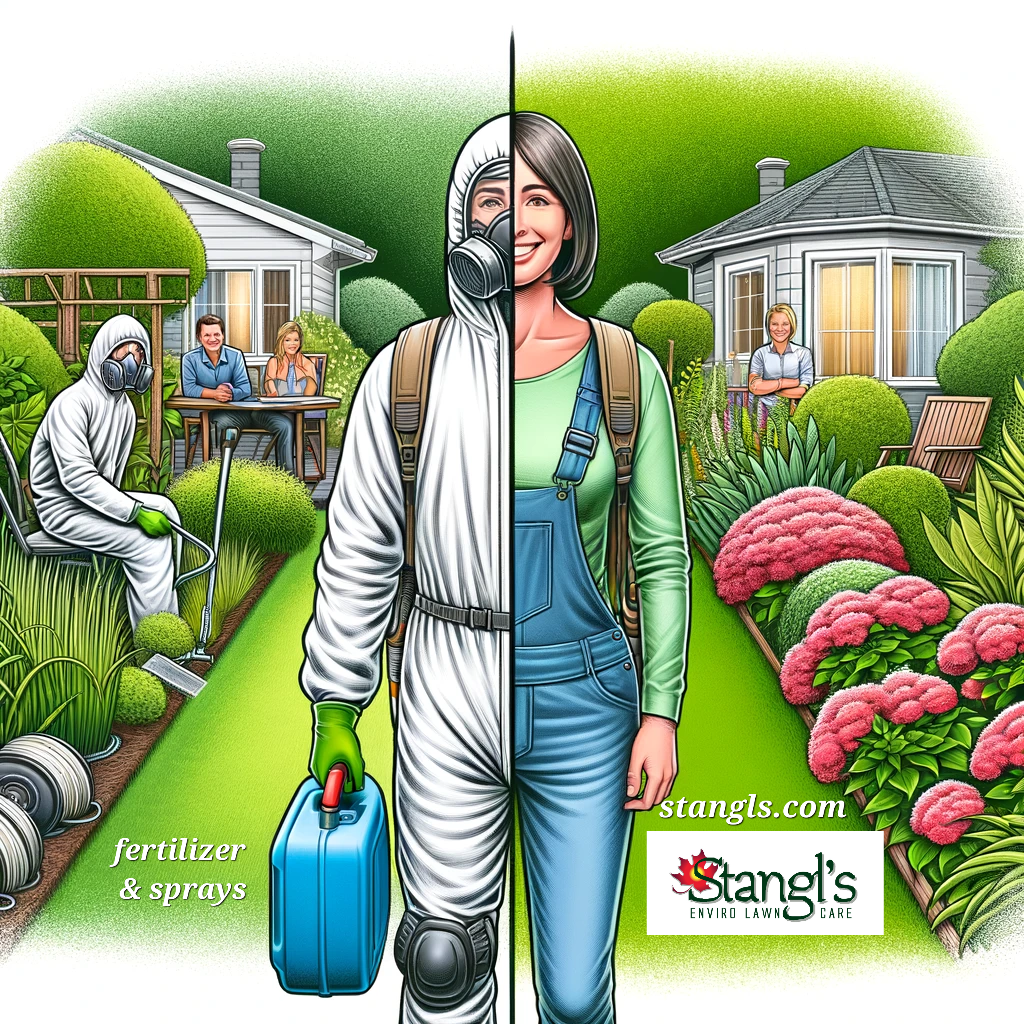In the world of lawn care and gardening, we often encounter products labeled as “expert-approved” or “scientifically formulated.” These labels can be enticing, suggesting that the solutions they offer are backed by a wealth of knowledge and research. However, it’s essential not to let the veneer of expertise silence your questions and curiosity when it comes to your garden’s health and the environment.
The Power of Marketing: Crafting Beliefs
Marketing is a powerful tool. It can craft beliefs and shape consumer choices. Many of us have grown up with the idea that a beautiful lawn requires synthetic fertilizers, chemical herbicides, and pesticides. These products promise quick fixes, and their advertisements are often convincing. But have we ever stopped to ask what these products might be doing to our soil, our health, and the broader ecosystem?
The ‘Expert’ Silence
One challenge in questioning the status quo is the notion that we, as consumers, are not experts. We might feel intimidated by the claims of scientists, industry specialists, or even neighbors who swear by conventional products. This feeling of inadequacy can lead to silence, preventing us from asking critical questions about the sustainability and long-term consequences of these practices.
Empowering the Inquisitive Gardener
The truth is, you don’t need a degree in soil science to ask important questions about what you’re putting in your garden. Your curiosity is a powerful tool. Here are a few questions to consider:
- What is the long-term impact of synthetic fertilizers and chemicals on my soil’s health?
- How do these products affect the broader environment, including local water bodies and wildlife?
- Are there alternative, more sustainable approaches to lawn and garden care that align with my values?
Seeking Sustainable Alternatives
Thankfully, the world of sustainable gardening offers numerous alternatives that nurture both your garden and the planet. Composting, mulching, and using organic matter can improve soil health naturally. Embracing biodiversity and selecting native plants can reduce the need for chemical interventions. Sustainable practices not only create healthier, more resilient gardens but also contribute to the conservation of our precious ecosystems.
Join the Conversation
It’s time to reclaim the conversation about what we put in our gardens. Don’t let the so-called “experts” silence your questions and curiosity. Sustainable gardening is not just a trend; it’s a path toward a healthier planet and a more vibrant garden. Join the conversation, ask questions, and explore alternative, eco-friendly options. Your garden—and the world around it—will thank you for it.
Remember, you have the power to shape your garden’s future. It’s not about being an expert; it’s about being an informed and inquisitive gardener, caring for your piece of the Earth responsibly.
